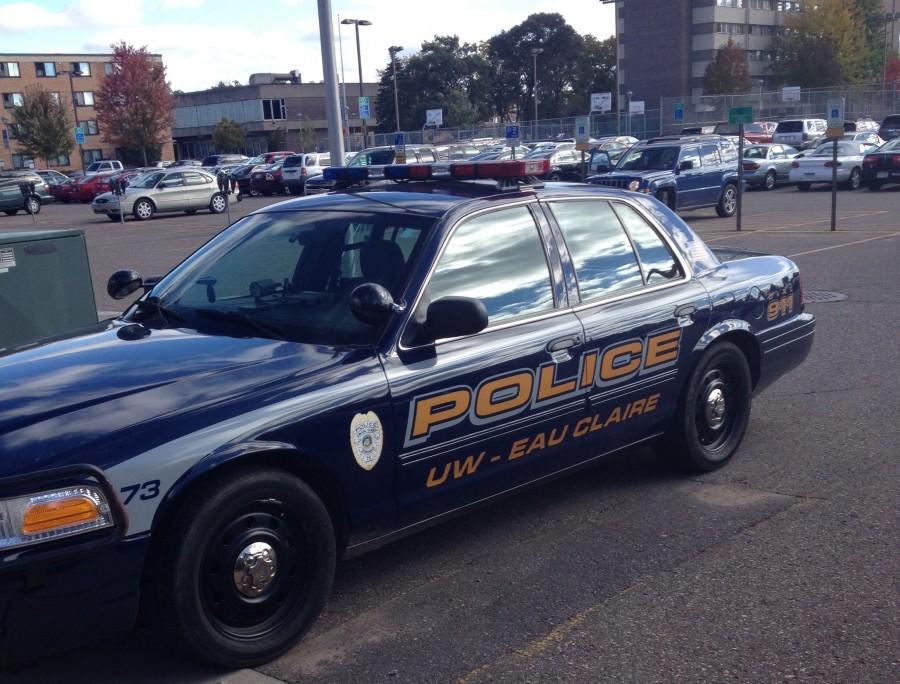Alcohol detox cases in dorms decreasing
University Police have noticed a decline in the number of alcohol-related problems on campus
More stories from Alyssa Anderson
Photo by Alyssa Anderson
College students across the nation put their lives at risk every weekend by binge drinking and UW-Eau Claire students are no exception.
However, University Police report a steady decrease in the number of alcohol-related incidents on campus, including Homecoming weekend.
“Last year on Homecoming, we had three detox cases,” University Police Sergeant Chris Kirchman said, “This year, we didn’t have any.”
An alcohol detox occurs after someone is not able to take care of themselves because of the alcohol level in their body, Kirchman said.
In the 2013- 14 school year, there were about 18 detoxes, Kirchman said, and about 14 last year. This year, Kirchman said there have only been about five alcohol detoxes.
Kirchman said no laws are broken if someone needs a detox after having too much to drink. Drinking too much alcohol is not illegal, even if you are underage.
“Even though the majority of people who are reported for alcohol detoxes are under the age of 21,” Kirchman said, “these cases normally only result in an underage drinking ticket.”
Kirchman said the drop in alcohol detoxes on campus is most likely linked to recent change in university, city and police attitudes towards underage drinking.
Eau Claire, along with the city and university police, work hard to educate students about alcohol safety instead of simply enforcing underage drinking laws, Kirchman said.
“The way I see it, you’re all adults,” Kirchman said, “If you choose to go out and drink, you need to be safe and take precautions. If you do that, you’ll most likely never run into us.”
Kirchman said the university has begun focusing on educating students about drinking safely, rather than repeatedly telling them not to drink. He said education is just as important as enforcement.
The 2014 annual security report indicates that in 2012, there were 45 arrests made in residence halls for violating state liquor laws, but none in 2013- 14.
Last spring, UW-Eau Claire students were assessed on their alcohol habits through the National College Health Assessment. The study indicated 14 percent of students said they have never consumed alcohol, 57 percent said they did not binge drink within the last 30 days of the survey and 67 percent reported using alcohol zero to five times within the last 30 days.
Katie Wilson, Health Educator for Student Health Services and the Center for Alcohol Studies and Education, said it is important to note many Eau Claire students use alcohol responsibly.
Wilson said instead of focusing on punishing underage drinkers, Eau Claire now puts more emphasis on teaching students safe drinking habits. Providing alcohol-free late-night activities is an important component when trying to prevent alcohol abuse on college campuses, Wilson said.
The university offers a plethora of late-night weekend activities, including swing dancing and Friday night trivia in The Lookout or cheap concerts in Zorn, where students are not pressured to participate in binge drinking.
“We just want to make sure students are safe,” Kirchman said, “And we work hard to not be the ones who keep telling students not to drink over and over again.”
After getting an underage drinking ticket, Kirchman explained that students have the option to take a class about alcohol safety. Kirchman said The First Offenders Class, offered by Counseling Services, was started to educate these students about the dangers of drinking and the effects of alcohol.

